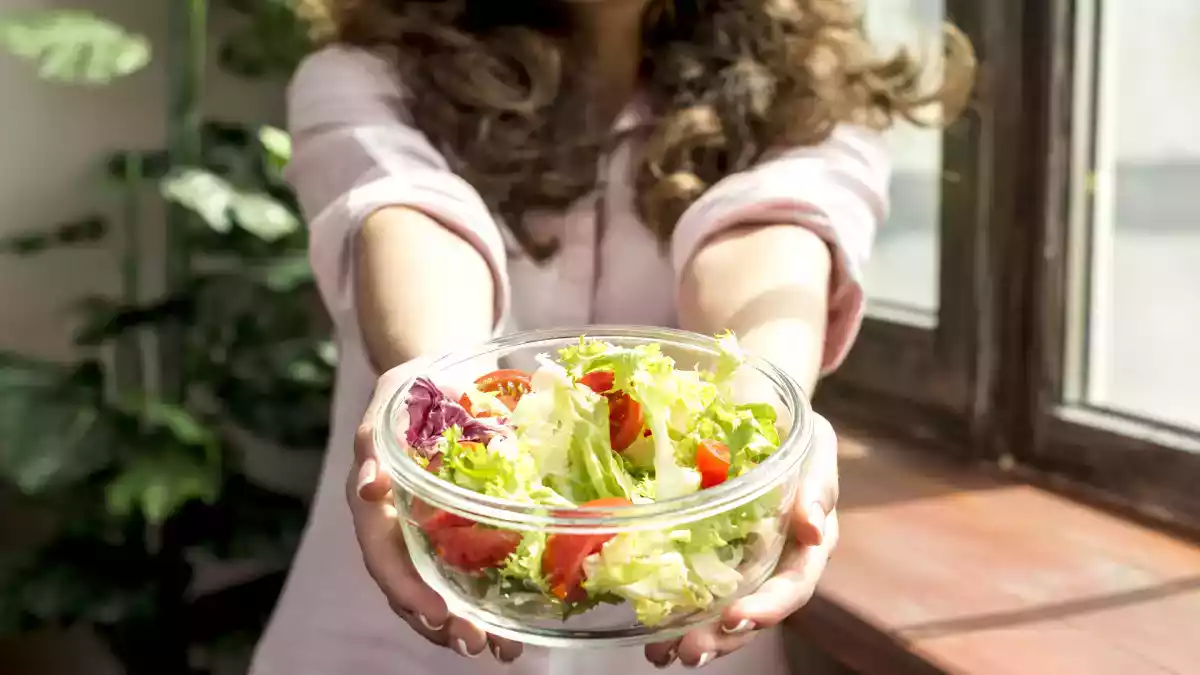Toxoplasmosis parasite detected in one in 25 bagged salads

Ready-to-eat salads are here to make our lives easier: open the bag, serve, dress... and that's it. But a recent European study reminds us that, when it comes to food safety, convenience can come at a price. Did you know that 1 in 25 bags could contain a potentially dangerous parasite?
You may not see it, smell it, or notice it at first bite. But there it is. Toxoplasma gondii, the protozoan that causes toxoplasmosis, has snuck into some of those bags sitting in your fridge. And the worst part? They come labeled as "ready-to-eat".
What is not seen is also eaten
This finding is not an isolated suspicion, but the result of the most extensive research conducted to date in Europe on this subject. The study, funded by the European Union and led by Spanish scientists, was published in the ECDC journal Eurosurveillance. In total, 3,293 bags of salad from ten European countries were analyzed, and 4.1 % of them tested positive for oocysts of the Toxoplasma gondii parasite. That is, one in 25.
The United Kingdom tops the list with 16 % of contaminated samples, while Norway and the Czech Republic barely registered any cases. In Spain, the figure is in line with the average: 4.1 %.
A label does not guarantee safety
The problem is not only the presence of the parasite, but the false sense of security. The fact that a product is industrially washed does not mean that it is free of risk. In fact, the researchers themselves recognize that they cannot determine whether the oocysts detected are active or not. And just one viable one is enough to cause an infection.
So, is it enough to rely on the "ready-to-eat" label? Science says no.
What are the health damages?
This is not to panic, but to be realistic. Although in healthy people Toxoplasma gondii infection is usually mild or even completely unnoticed, with mild flu-like symptoms such as fever or fatigue, the real risk appears in the case of pregnant women and those with weakened immune systems.
In pregnant women without previous immunity, the parasite can cross the placenta and seriously affect the development of the fetus: malformations, neurological or brain damage, vision problems, even spontaneous abortion.
In immunosuppressed people, such as oncology patients or transplant recipients, the parasite can reactivate and cause damage to vital organs.
The most disturbing thing is that it can start with something as simple as a poorly washed salad.
Useful, but not infallible precautions
Some precautions can help to reduce the risk, but it should be made clear that they are not infallible, especially when it comes to vulnerable groups such as pregnant women. Toxoplasma gondii oocysts are particularly resistant: they survive domestic washing, chlorinated water and, in many cases, even industrial processes. Therefore, from a technical point of view, the only really safe way to avoid infection through raw salads is not to consume them during pregnancy if they have not been subjected to a treatment that guarantees inactivation of the parasite.
Even so, in the general context, there are habits that can contribute to reduce the risk:
- Wash them at home, even if they come labeled as "ready to eat": use plenty of water and rub them carefully.
- Maintain the cold chain from the supermarket to your refrigerator.
- Check the best-before date and avoid consuming the product if it has damaged leaves, strange odor or cloudy liquid.
And, if you are pregnant or immunosuppressed, it is safest to avoid eating raw vegetables unless you can verify that they have been sanitized with specific safeguards (e.g., by heat treatment or validated disinfectants).
Eating healthy also means eating with knowledge
The rise of healthy, fresh and organic food has been positive in many respects. But if it is not accompanied by a "food safety culture", it can generate unnecessary risks. It is not enough to choose the right product: it is necessary to know how to handle it and when not to consume it.
How about you?
Do you usually consume bags of salads, do you wash salads before serving them despite their "ready-to-eat" label, and will you change your habits after learning the conclusion of this study?
We are interested to know how you live these daily decisions. Tell us in the comments or share your experience with those who, like you, want to eat well... without compromising their health.
 Patricia González
Patricia González
Comments